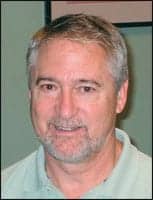Last Updated: 2007-11-13 16:24:23 -0400 (Reuters Health)
WASHINGTON (Reuters) – Vaccines have cut deaths from the diseases they prevent by 99%, U.S. government researchers reported on Tuesday.
They looked at the rates of both disease and deaths for 13 illnesses prevented by vaccines, most given in infancy and childhood, and found they have worked as intended.
"The number of cases of most vaccine-preventable diseases is at an all-time low; hospitalizations and deaths from vaccine-preventable diseases have also shown striking decreases," the researchers wrote in their report, published in the Journal of the American Medical Association.
"These achievements are largely due to reaching and maintaining high vaccine coverage levels from infancy throughout childhood by successful implementation of the infant and childhood immunization program."
Sandra Roush of the Centers for Disease Control and Prevention and colleagues examined the illness and death rates for 13 vaccine-preventable diseases – diphtheria, pertussis, tetanus, polio, measles, mumps, rubella, invasive Haemophilus influenzae type b (Hib), acute hepatitis B, hepatitis A, varicella, Streptococcus pneumoniae and smallpox.
Smallpox was eradicated globally in 1979 thanks to vaccination and now the immunization is not routinely given to the general public.
"Vaccines are one of the greatest achievements of biomedical science and public health," Roush and her team wrote.
The U.S. statistics showed striking reductions in both disease and death. For example, between 1936 and 1945, more than 21,000 people on average became infected with diphtheria and 1,800 died on average every year. There were no cases or deaths in 2006.
Between 1953 and 1962, more than 500,000 people caught measles every year and 440 died of it. There were 55 cases in 2006.
The decline in cases of mumps was 95.9% after mandatory vaccination. Tetanus cases fell by 92.9%, and whooping cough cases declined by 92.2%. Deaths from tetanus and whooping cough fell by 99%.
U.S. children must show they have current vaccinations to attend most schools, or parents must declare they have a recognized philosophical or religious objection to vaccination.
Some parents have expressed fears about the safety of vaccines and in some communities, groups have refused vaccination. The researchers said this has been shown to endanger both those who do not get vaccinated, and people they come into contact with.



